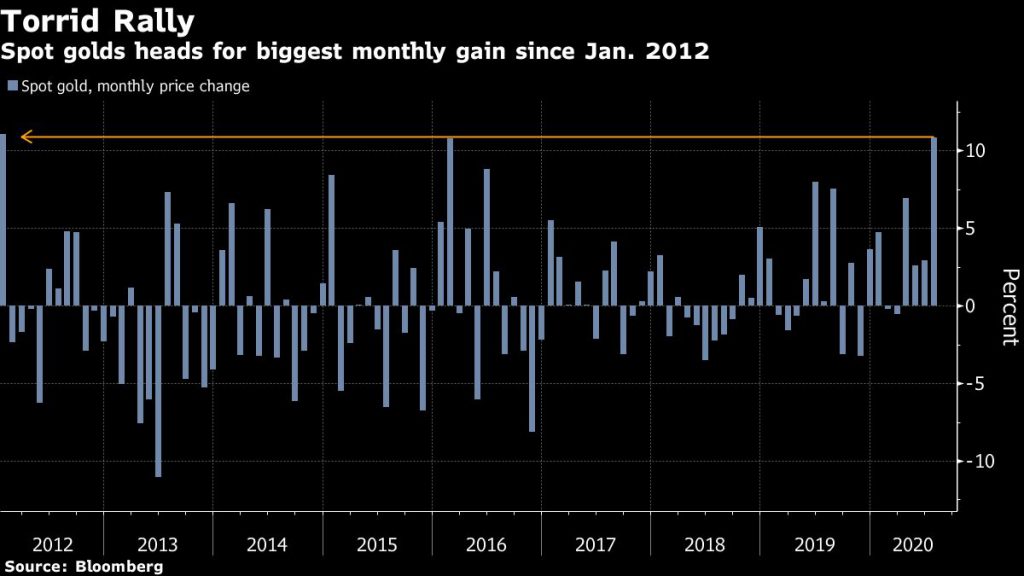Gold price set for best month in eight years

Gold prices edged higher on Friday as the worsening covid-19 pandemic continues to stifle the global economy.
Spot gold rose 11% for the month of July, heading for its biggest monthly gain in over eight years, driven by a declining US dollar and real yields. By 11:15 a.m. EDT, the spot price was up 1.0% to $1,974.40 per ounce, near an all-time high.

Concerns have also been raised about the US dollar’s status as the world’s reserve currency of choice as it gets closer to its biggest monthly drop in almost a decade. The US dollar is often seen by investors as a rival safe-haven asset to gold, and its decline makes dollar-priced gold cheaper for holders of other currencies.
Meanwhile, the pandemic may bring structural shifts to investors’ asset allocation, says the World Gold Council, and there are “strong fundamental reasons” supporting gold investment in the longer term.
Gold futures for December delivery, now the most actively traded contract, jumped 1.1% to $1,989.30 an ounce in New York. Gold traders on Thursday declared their intent to deliver 3.3 million ounces against the August contract, the largest daily delivery notice in bourse data going back to 1994.
Money managers allocated $3.9 billion into gold, the second largest weekly inflow ever, the Bank of America said on Friday.
“Gold is more of a store of value right now than pretty much anything else,” Michael Hewson, chief market analyst at CMC Markets UK, told Reuters.
“Optimism about a V-shaped recovery is very much at risk and gold is seeing the benefit from that. It’s quite likely that we’ll see $2,000 an ounce in fairly short order.”
Michael Hewson, chief market analyst, CMC Markets UK
With more stimulus to resuscitate the economy on the horizon, Goldman Sachs Group has said that gold is the currency of last resort amid an inflation threat to the dollar. The bank forecasts a rally to $2,300 an ounce for the precious metal.
Bank of America Corp. says prices could soar to as high as $3,000 an ounce, while JPMorgan Chase & Co. sees the rally losing steam later this year.
(With files from Bloomberg and Reuters)
More News
{{ commodity.name }}
{{ post.title }}
{{ post.date }}




Comments